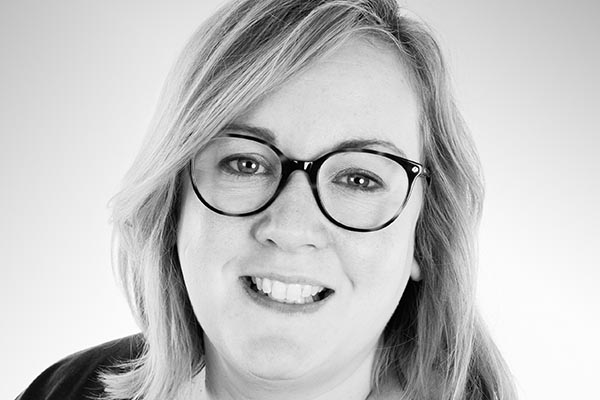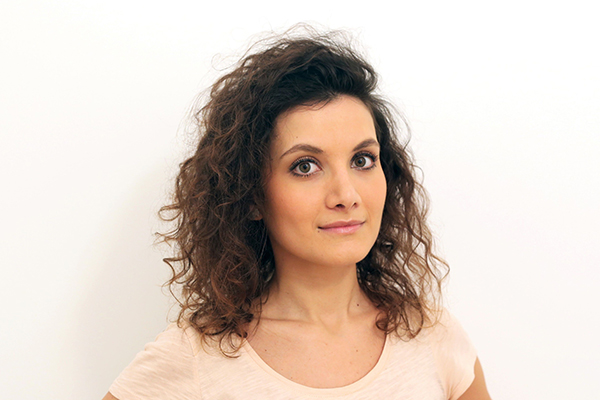They are the researchers on a journey to help us understand more about how counselling changes lives – and how therapy can be as beneficial as possible.
Four PhD students are currently benefiting from BACP studentships, with their topics as far-reaching as men’s experiences of therapy and the effectiveness of person-centred experiential therapy.
This year another two doctoral bursaries will be given out to researchers investigating counselling for older people, and school-based humanistic counselling.
Among the current research students is Jennifer Holland, who started a part-time PhD at the University of Nottingham in October.
Jennifer used to run a café, but decided that therapy was where her future lay while on maternity leave.
"I had a moment of realisation and decided to retrain as a therapist. There are actually many similarities between running a business and therapy, the parts of my role within the business that I loved were always about forming relationships, be it with team members, customers or suppliers.
Part of a community
"The person-centred approach to counselling really grabbed me. I have finally found that thing that described me and how I relate to people. I feel like I have become part of a community."
Jennifer did a basic certificate in counselling, then an MA before becoming a counsellor.
Now she balances a part-time PhD, with a small private practice and working at a research clinic.
Her PhD will see her develop a competency framework for humanistic therapists working with clients who have experienced trauma.
"It’s early days – but it’s really interesting," said Jennifer. "My experience has been in dealing with clients who have experienced complex trauma, such as people who were sexually abused as children.
"My experience was that the relationship between the therapist and client was pivotal in reaching these clients. I wanted to understand more about this; why there’s such a drop-out rate, why it can be hard to reach these clients. Why are people who have experienced trauma routinely sent for CBT or EMDR and not person-centred therapy?"

Jennifer Holland
The first part of her PhD includes understanding how good outcome cases are defined in therapy. Once identified, she will then go through thousands of hours of recorded sessions, from the university’s research clinic, to identify the therapists’ competencies when dealing with clients with trauma.
Jennifer will then put together a training package for therapists, based on these competencies, and carry out a small, staggered multiple baseline trial, designed to demonstrate the impact of the competencies.
The research output will be a competency manual and training handbook that will ensure that humanistic therapists will be able to provide evidence-based therapy for trauma.
"This will add to the growing body of research that advocates for humanistic therapies to become recognised treatment options for trauma," she said. "My ultimate aim would be that humanistic therapy would be NICE-approved for people with trauma.”
Jennifer added: "I feel very lucky to be able to research the subject that I love. I’m really enjoying it."
Dream outcome
Antonella Cirasola is in the second year of her PhD at University College London, after receiving a BACP studentship.
Her research focuses on the role of the therapeutic alliance, involving the affective and collaborative aspects of the relationship between the therapist and the patient, in psychological therapies for depression.
“My dream outcome is that I will be able to come up with some guidelines for therapists on how to foster a better alliance, if the alliance is revealed to be a key ingredient of adolescent psychotherapy.
“That’s the dream – but I still have a long way to go. In research, you have to keep an open mind. You can’t have too many expectations. I will work hard and see what I discover.”
Antonella is using information from the Improving Mood with Psychoanalytic and Cognitive Therapies (IMPACT) database, one of the biggest ever randomised control trials to assess the medium-term effects of three therapeutic interventions in the treatment of adolescent depression.

Antonella Cirasola
A total of 465 young people aged between 11 and 17 with diagnosis of major depression were randomised to receive either CBT, short-term psychoanalytic psychotherapy or brief psychosocial intervention as part of the study.
Information about the therapeutic alliance was recorded for more than 350 of these.
She will use the data, as well as audio interviews of the therapy sessions that were recorded, as part of her research.
“There’s research into how a good therapeutic alliance can lead to a good outcome for adults, but there’s much less research when it comes to adolescents. I hope therapists will learn from what I find out in my research,” she added.
Antonella graduated with a degree in clinical psychology in her native Italy.
Now she balances her part-time PhD with teaching and working as a research officer at the Anna Freud National Centre for Children and Families.
“I’ve always been interested in the early identification of mental health difficulties, and how research can make a difference to clinical work.
“I love my PhD. I’m extremely grateful to BACP as without the studentship I wouldn’t have been able to do this.”
Apply for a BACP PhD studentship
The BACP PhD studentship is paid at the rate of £7,500, including part-time course fees, up to a maximum of five years.
This year we are funding two doctorial bursaries. One is for research into school-based humanistic counselling: using data from ETHOS, the other is for research into counselling for older people.
Applications for the 2019 BACP PhD studentships are now closed. For more information visit research awards and grants.
